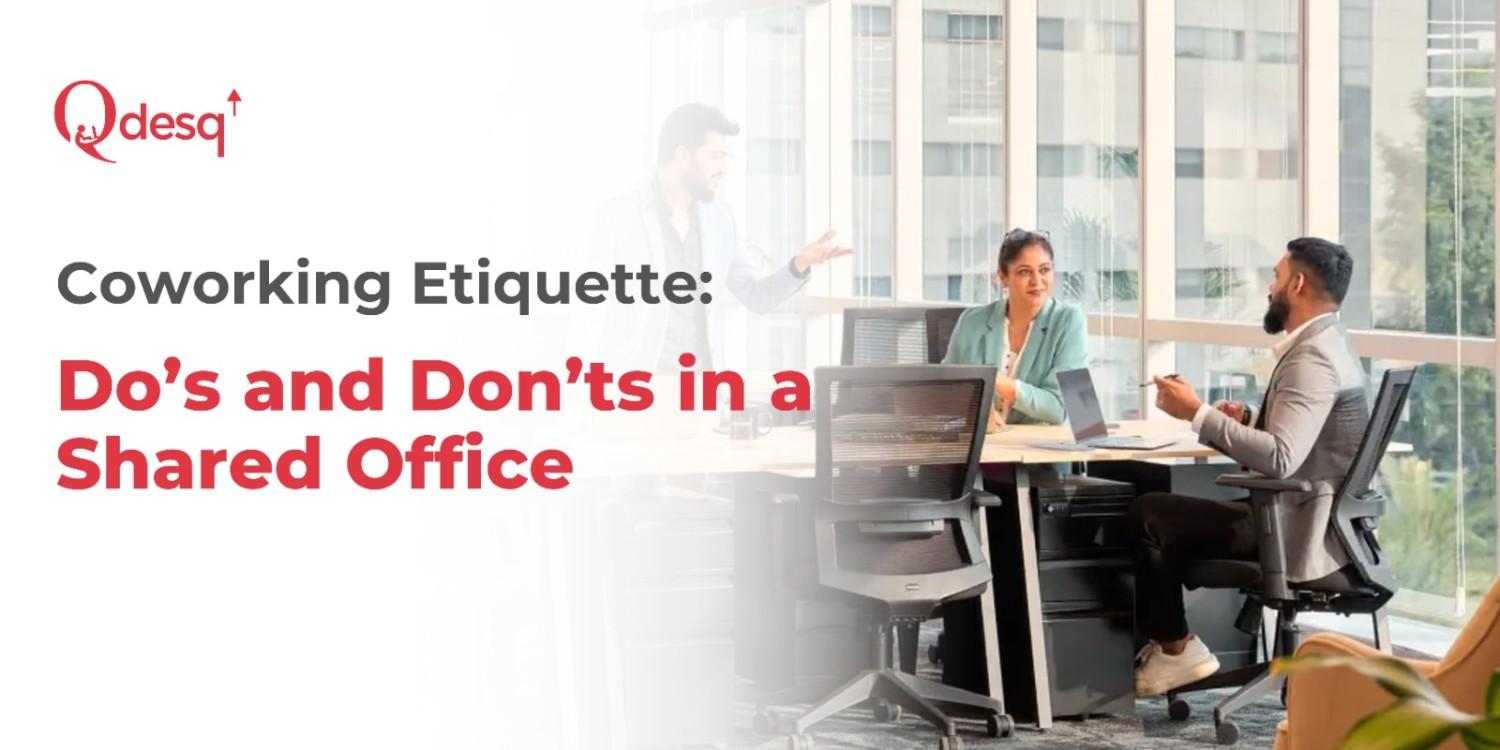Coworking spaces have revolutionised the way we work. Shared offices are becoming the new norm, from solopreneurs and remote professionals to startups and enterprise teams. But with this freedom and flexibility comes the need for responsibility. That’s where coworking etiquette plays a crucial role.
When multiple individuals and teams work under one roof, often with different goals and work styles, following a particular set of behavioural standards becomes essential. Practising good coworking space etiquette isn’t just polite: it helps maintain harmony, improves productivity, and encourages collaboration.
In this blog, we’ll walk you through the dos and don’ts of coworking spaces, offering practical tips for being a courteous coworking member.
Understanding the Basics of Coworking Etiquette
So, what is coworking etiquette exactly?
It’s a simple concept: respect the shared environment and its people. It is an invisible rulebook that helps everyone work together without friction. While each coworking space might have its formal policies, general etiquette applies universally, whether you’re working in a quiet zone, hot-desking, or renting a private cabin.
From how you handle noise to how you use common resources, coworking etiquette sets the tone for a productive and positive experience.
Essential Habits and Pitfalls in a Shared Office
Let’s break it down further into things you should do and avoid. These simple rules can help you integrate into any coworking community and work without disrupting others.
Smart Habits to Adopt in a Coworking Space
Being a good coworker in a shared office is easier than you think. A few mindful habits can make a big difference.
- Keep Your Area Neat and Tidy: Your workspace reflects you. Leaving behind dirty dishes, food wrappers, or tangled wires looks unprofessional and impacts others who use the same space. Before leaving for the day, take a few seconds to reset your space—wipe the desk, return chairs, and dispose of trash properly. Cleanliness in coworking areas—especially shared kitchens and lounges—is a basic yet powerful sign of mutual respect.
- Control Noise and Distractions: Coworking spaces are built for collaboration but require quiet focus. Always use headphones when listening to music or watching videos, and take personal or client calls in designated zones or phone booths. Loud conversations or video meetings in open work areas can throw off the concentration of people around you. Remember, noise travels quickly in open-plan offices—a little awareness goes a long way.
- Be Polite and Thoughtful When Interacting: Networking is one of the perks of coworking, but it has its time and place. If someone is working with headphones on or appears deep in concentration, save that chat for later. Friendly nods, brief hellos, or Slack messages are polite ways to connect without being intrusive. Also, respect different work styles—some people thrive on collaboration, others prefer solitude.
- Stick to Community Guidelines: Every coworking space has its own house rules. These may include meeting room booking procedures, pantry protocols, and access hours. Ensure you understand and follow these rules—they show consideration for the space and its members. When in doubt, ask the community manager. They’re there to help ensure a smooth, respectful coworking experience.
Behaviours to Avoid in a Shared Workspace
Now that we’ve covered the good stuff, let’s discuss the most common mistakes that can ruin the coworking vibe.
- Don’t Be a Disruption: Unintentionally becoming a distraction is easier than you might think. That loud ringtone? Distracting. Video call on speaker? Disruptive. Even strong food smells or playing videos aloud can make concentrating hard for others. Try to be conscious of how your actions affect the shared environment. It’s not about being silent—it’s about being considerate.
- Don’t Invade Other People’s Space: Respecting physical boundaries is key in a shared office. Don’t borrow someone’s chair, plug into their charger, or take over extra desk space unless you’ve asked first. Even small gestures—like looking at someone’s laptop screen or standing too close—can feel intrusive. Treat every workspace like it’s someone’s zone, even in a communal setting.
- Don’t Overuse Shared Resources: Whether it’s the coffee machine, meeting rooms, or Wi-Fi bandwidth, coworking means shared responsibility. Avoid hogging equipment, overstaying your booking, or printing 500 pages during peak hours. These amenities are for everyone. Using them fairly ensures smooth operations and builds goodwill with coworkers.
- Don’t Forget Your Professionalism: Coworking may be relaxed, but professionalism is still expected. Show up on time, meet deadlines, and maintain a courteous conversation tone. This also includes dressing appropriately—business casual works well in most spaces. Just because the environment is informal doesn’t mean your behaviour should be.
Why Practising Etiquette in Coworking Matters
Good coworking behaviour is more than just a checklist—it’s the foundation of a thriving community. The entire ecosystem benefits when members respect each other’s time, space, and work style.
Learning coworking space etiquette makes you more approachable, trustworthy, and reliable. It fosters collaboration, makes it easier to form connections, and boosts your brand, primarily if you’re representing your company or startup.
Think of it as your social capital. The more you invest in being a good coworking citizen, the more you’ll get out of the experience.
Final Words: Good Manners Make Great Workspaces
Coworking spaces offer the perfect setting to thrive in a world where flexibility and collaboration define modern work culture. However, that shared success hinges on how we treat each other in these environments.
By following the dos and don’ts of coworking, you contribute to a respectful, productive, and inspiring workplace where everyone feels empowered to do their best work.
Following proper etiquette doesn’t take much, just awareness and respect. And in return, you get more than just a desk. You get a dynamic, supportive professional community.











